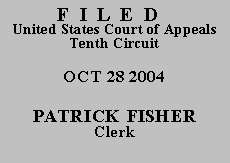

| DWAYNE GARRETT, |
|
| v. | |
| GREGORY W. ALBERT, an
individual; Various unknown
JOHN and/or JANE DOE(S), |
A motion to dismiss is properly granted when it appears beyond doubt that the plaintiff can prove no set of facts that would entitle him to relief. See Conley v. Gibson, 355 U.S. 41, 45-46 (1957). We review the grant of a motion to dismiss de novo. Sutton v. Utah State Sch. for the Deaf & Blind, 173 F.3d 1226, 1236 (10th Cir. 1999).
This case arises out of Plaintiff's petition in the Oklahoma Supreme Court seeking a writ of mandamus. The Supreme Court referred the petition to Defendant as a referee. Plaintiff alleges that Defendant refused to allow a non-lawyer to represent him, thereby denying him his right of access to the courts.
The district court ruled that Defendant was acting in a judicial capacity when, as referee, he denied Plaintiff's request to be represented by a non-lawyer. Citing our opinion in Whitesel v. Sengenberger, 222 F.3d 861, 867 (10th Cir. 2000), the court held that Defendant was therefore entitled to absolute judicial immunity. We agree.
For essentially the reasons stated by the district court, we AFFIRM. We also DENY plaintiff's motion to disqualify all judges of this court.
ENTERED FOR THE COURT
Harris L Hartz
Circuit Judge
*.After examining the briefs and appellate record, this panel has determined unanimously that oral argument would not materially assist the determination of this appeal. See Fed. R. App. P. 34(a)(2); 10th Cir. R. 34.1(G). The case is therefore ordered submitted without oral argument. This order and judgment is not binding precedent, except under the doctrines of law of the case, res judicata, and collateral estoppel. The court generally disfavors the citation of orders and judgments; nevertheless, an order and judgment may be cited under the terms and conditions of 10th Cir. R. 36.3.